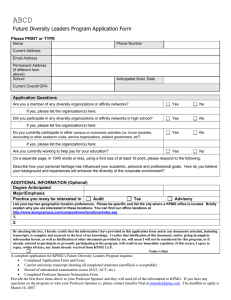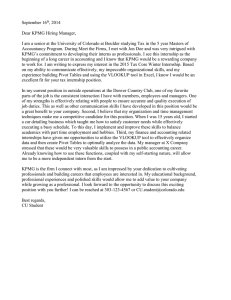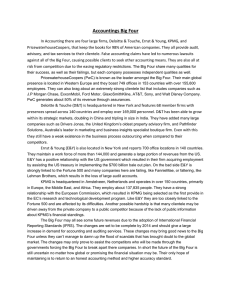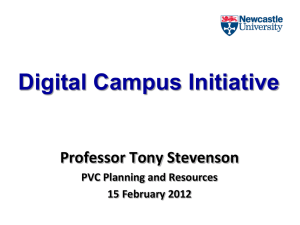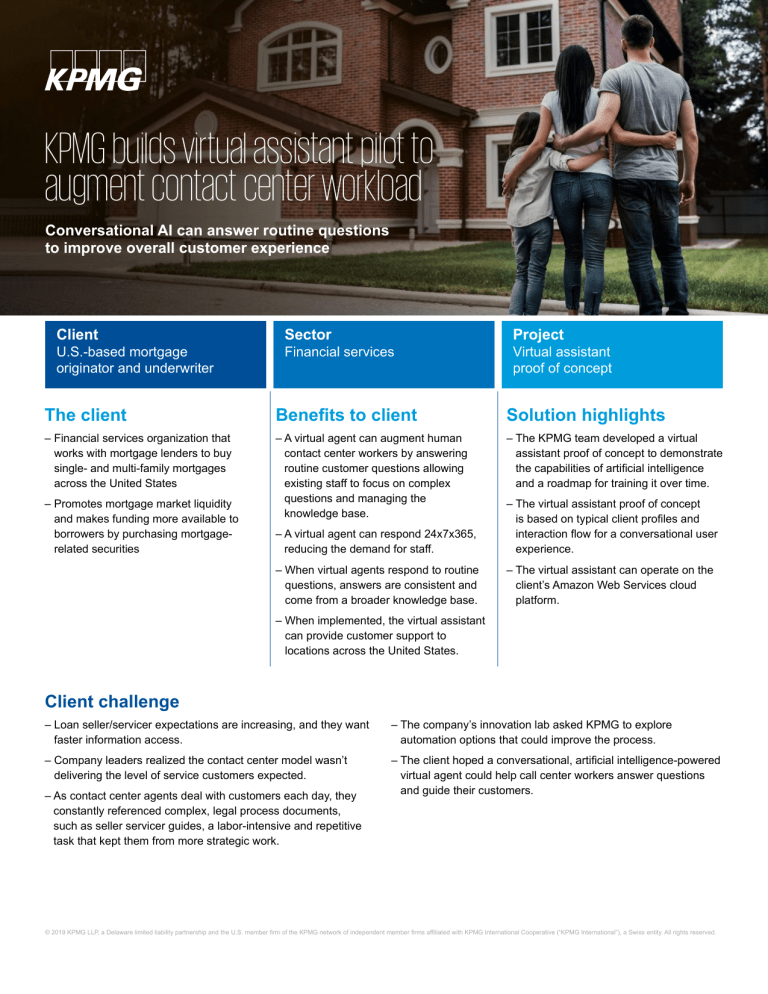
KPMG builds virtual assistant pilot to augment contact center workload Conversational AI can answer routine questions to improve overall customer experience Client U.S.-based mortgage originator and underwriter Sector Financial services Project Virtual assistant proof of concept The client Benefits to client Solution highlights – Financial services organization that works with mortgage lenders to buy single- and multi-family mortgages across the United States – A virtual agent can augment human contact center workers by answering routine customer questions allowing existing staff to focus on complex questions and managing the knowledge base. – The KPMG team developed a virtual assistant proof of concept to demonstrate the capabilities of artificial intelligence and a roadmap for training it over time. – Promotes mortgage market liquidity and makes funding more available to borrowers by purchasing mortgagerelated securities – A virtual agent can respond 24x7x365, reducing the demand for staff. – The virtual assistant proof of concept is based on typical client profiles and interaction flow for a conversational user experience. – When virtual agents respond to routine questions, answers are consistent and come from a broader knowledge base. – The virtual assistant can operate on the client’s Amazon Web Services cloud platform. – When implemented, the virtual assistant can provide customer support to locations across the United States. Client challenge – Loan seller/servicer expectations are increasing, and they want faster information access. – The company’s innovation lab asked KPMG to explore automation options that could improve the process. – Company leaders realized the contact center model wasn’t delivering the level of service customers expected. – The client hoped a conversational, artificial intelligence-powered virtual agent could help call center workers answer questions and guide their customers. – As contact center agents deal with customers each day, they constantly referenced complex, legal process documents, such as seller servicer guides, a labor-intensive and repetitive task that kept them from more strategic work. © 2019 KPMG LLP, a Delaware limited liability partnership and the U.S. member firm of the KPMG network of independent member firms affiliated with KPMG International Cooperative (“KPMG International”), a Swiss entity. All rights reserved. The solution The KPMG team worked with the client to build a conversational virtual assistant proof of concept to demonstrate the capabilities of artificial intelligence. The virtual assistant would provide the client’s customers an around-the-clock, self-serve option for answers and a better overall experience at a lower cost for the client. – To create the virtual assistant proof of concept, the KPMG team defined use cases based on typical customer use, designed software bot and client profiles, and developed design principles and interaction flow for a conversational user experience. – The KPMG and client team collaborated to select the cloud platform, architect technology platform components, and construct the virtual agent through a series of Agile development sprints to operate on their Amazon Web Services cloud platform. ­ – The team also developed a roadmap outlining skills, process, and governance considerations needed to train the virtual agent. The insights The KPMG team brought significant data analytics, technology, and industry experience to help the client determine a solution to a complex business issue. – The KPMG team used its technical and design know-how to successfully create and implement a conversational virtual agent the client can use companywide. – KPMG’s extensive work with data governance and cloud development experience for creating AI applications on Amazon Web Services helped fulfill the client’s needs. – The team applied data science knowledge for constructing formative processes to maintain and train the AI system. – For more information on KPMG conversational AI offerings, visit https://advisory.kpmg.us/articles/2018/how-may-ai-assistyou.html. If you are interested in learning more about this case study, or if you are experiencing similar issues, please contact us. Bob Parr rparr@kpmg.com 312-513-0955 Tom Haslam thomashaslam@kpmg.com 201-637-6024 Arthur Franke arthurfranke@kpmg.com 917-324-2321 For more information about KPMG’s intelligent automation capabilities, go to kpmg.com/us/intelligentautomation. kpmg.com/socialmedia Some or all of the services described herein may not be permissible for KPMG audit clients and their affiliates or related entities. The information contained herein is of a general nature and is not intended to address the circumstances of any particular individual or entity. Although we endeavor to provide accurate and timely information, there can be no guarantee that such information is accurate as of the date it is received or that it will continue to be accurate in the future. No one should act upon such information without appropriate professional advice after a thorough examination of the particular situation. © 2019 KPMG LLP, a Delaware limited liability partnership and the U.S. member firm of the KPMG network of independent member firms affiliated with KPMG International Cooperative (“KPMG International”), a Swiss entity. All rights reserved. The KPMG name and logo are registered trademarks or trademarks of KPMG International.
